【新唐人2012年2月21日訊】繼去年12月下調存準率之後,中共中央銀行將自24號起,再次下調存款準備金率0.5個百分點,預計向市場投放大約4000億元人民幣的流動性資金。這次調整後,中國大型金融機構和中小金融機構將分別執行20.5%和17.0%的存款準備金率。有學者認為,中國下調銀行存款準備金率,並不是貨幣政策進入全面寬鬆通道,而是想緩解市場流動資金的短缺現象。
中國人民銀行宣佈,從2月24號開始,下調存款準備金率0.5個百分點。據了解,這次下調距離上次不到3個月。這是人民銀行今年以來首次下調存款準備金率。
對此,經濟學家草庵認為,當局下調準備金率的目地,是要增加貨幣的流動性。
經濟學家草庵:「在不久前中國政府認為經濟過熱,所以連續上提央行準備金率,但是在目前為止顯示一個問題,中國經濟逐漸走下坡,所以資金流動出現了大問題,明顯的標示就是地下金融募集資金的渠道斷裂,造成民營企業的資金周轉不靈,同時現在中國的主要房地產業,其他工廠的開工,都出現了資金短缺的問題。」
草庵表示,在這種情況下,中共又面臨連續三個月外商在中國的投資下降,造成中國經濟的惡化,失業率大幅度的增加,所以當局採取一個措施,就是增加資金的流動性。
經濟學家草庵:「但是現在採取的這種狀況,它還不是幅度很大,我想它會連續幾個月都下調,我想至少在半年之內,它會逐漸逐漸的下調,放鬆這個資金管制。」
另外,這次下調存款準備金率將釋放4000多億元的流動性資金,但下調不等於寬鬆,黑龍江經濟學者廖誠表示,中國房地產泡沫化的連鎖反應,導致經濟緊張,中共當局當然希望民間存款利息越少越好,放貸的利息越高越好,因為它是一種壟斷行為。
黑龍江經濟學者廖誠:「把這個錢都擠壓到壟斷行業、國有企業這塊,完了它好利用這些資金、利潤,去調解一些就是解決一些燃眉之急,來緩解它的危機,它現在是不擇手段了,不管怎麼做,它都是來緩解房地產泡沫導致這個金融危機的連鎖反應,和政府腐敗的形象工程。」
中國「人民大學金融與證券研究所」所長吳曉求,對於這次下調銀行準備金率,他分析有兩個原因,第一,暗示2月份的CPI﹙消費者物價指數﹚數字可能不樂觀。第二,本不寬裕的銀行間市場資金面再度繃緊,外匯佔款未來可能呈長期下降之勢。
中共當局的統計數據顯示,外匯佔款已經連續3個月下降,12月外匯存底減少398億美元。學者認為,中國經濟面臨經濟滑坡與物價上漲的雙重壓力。
新唐人記者常春、黃容、柏妮採訪報導。
CCP's Central Bank Reduces Deposit Ratio to Ease Market Liquidity
Following last December’s cut on deposit interest rates, the
Chinese Communist Party (CCP)’s Central Bank will lower
its deposit reserve ratio by 0.5 percentage points starting Feb. 24th,
and is expected to invest 400 billion yuan of market liquidity.
After this adjustment, large financial institutions and
small and medium-sized financial institutions will perform 20.5% and 17.0% of the deposit reserve ratio.
Some scholars believe China’s reduction of bank deposit reserve
ratio is not a sign of comprehensive monetary liberty, but to ease the shortage of market liquidity.
People's Bank of China announced it will lower its deposit reserve
ratio by 0.5 percentage points starting Feb. 24th.
This cut is less than three months from the last one, and the
first time the People's Bank cut deposit reserve ratio in 2012.
Economist Caoan thinks the goal to lower deposit reserve ratio
is to increase the flow of money.
Economist Caoan: “Not long ago, the Chinese regime believed the
economy is overheating, so it raised the central bank’s reserve ratio.
But at present, it shows a problem that China’s economy is going
downhill, and there are huge problems on funds.
A clear manifestation is the fracture of underground funds rising,
causing cash flow problems for private enterprises.
At the same time, China's major real estate enterprises and
other factories have shortage of funds”
Caoan said that on top of that the CCP is facing a three months
decline of foreign investment in China.
This has resulted in the deterioration of China's economy and
a substantially increased unemployment rate.
For this reason the CCP took the approach of increasing
the flow of money.
Economist Caoan: “It's not doing it on a large magnitude.
I think it (CCP) will lower the rate in the next several months, for at least half a year to ease capital control.”
This reduction on deposit reserve ratio will release
more than 400 billion yuan of liquidity. But lowering the ratio does not mean ease of control.
Heilongjiang economist Liao Cheng said that the chain reaction of
the Chinese real estate bubble will lead to economic tensions.
The CCP authorities certainly hope to drive the private deposit
interest as low as possible, and the lending interest as high as possible, because it is a kind of monopolistic behavior.
Helongjiang Economist Liao Cheng: “It (CCP) squeezes all the
money to the monopolistic enterprises, the state-owned enterprises.
Then it can use the money and profits to solve some urgent issues
and ease its own crisis. It is unscrupulous.
Whatever it does, it is to ease the financial crises caused by
the real estate bubble and its corrupt image.”
People's University Finance and Securities Institute Director
Wu Xiaoqiu suggests two reasons for the bank reserve ratio cut.
One would be that the February CPI (Consumer Price Index)
figures may not be optimistic;
and the second that the not well-off inter-bank market fund
is once again tight. And so the foreign reserve might decline in the long run.
According to CCP authorities’ data, the foreign exchange has
declined for three months consecutively.
In December 2011, the foreign reserve declined $39.8 billion.
Scholars believe China’s economy is facing a double pressure,
that from the economic downturn and from the price hike.
NTD reporters Chang Chun, Huang Rong and Bo Ni
看下一集

【禁聞】李莊解密當年「認罪」藏頭詩
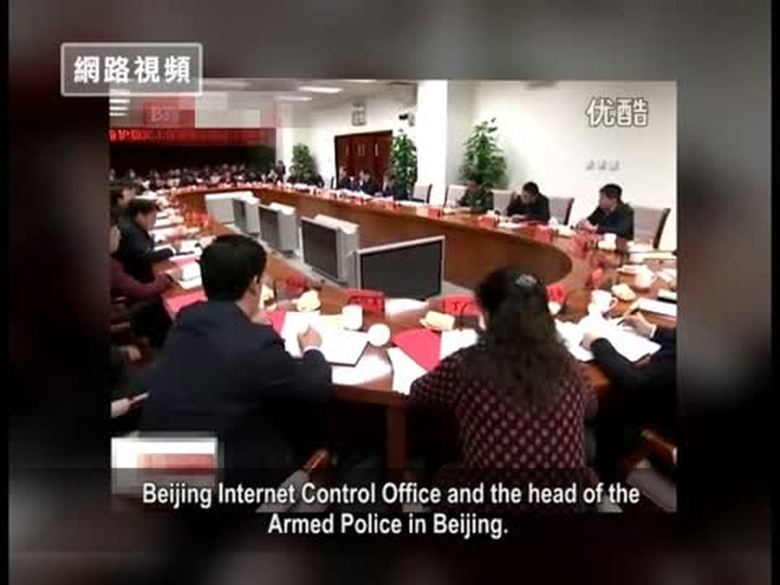
【禁聞】「維穩」 為甚麼越來越不穩?
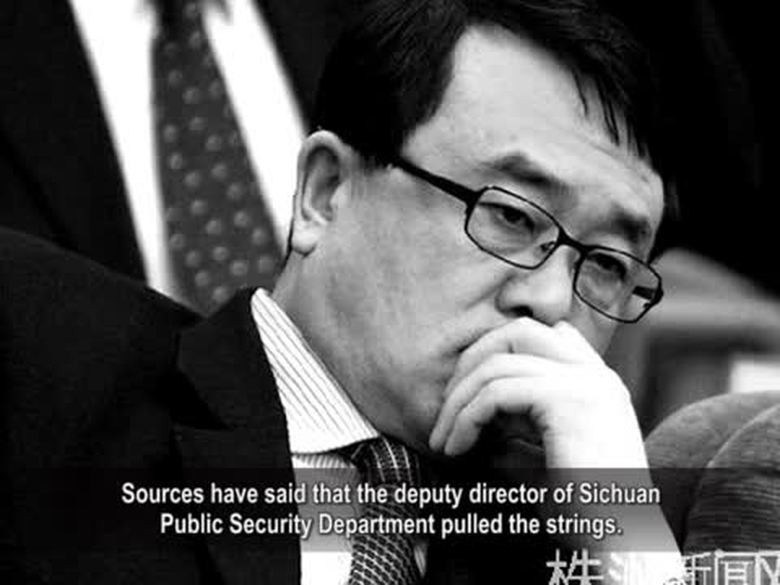
【禁聞】薄熙來三包罪證在哪裏?功效何在
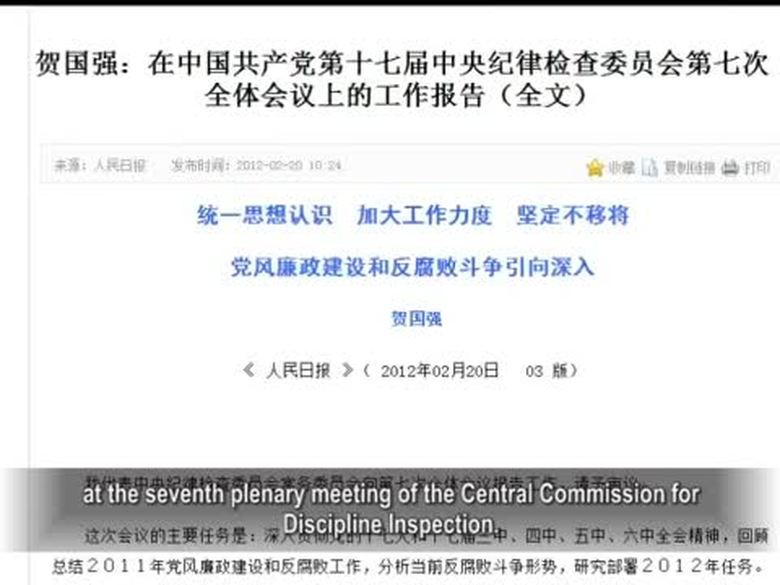
【禁聞】薄熙來陷楚歌 賀國強擇時唱反腐調

【禁聞】輿論痛批 天價動車洗劫人民血汗錢
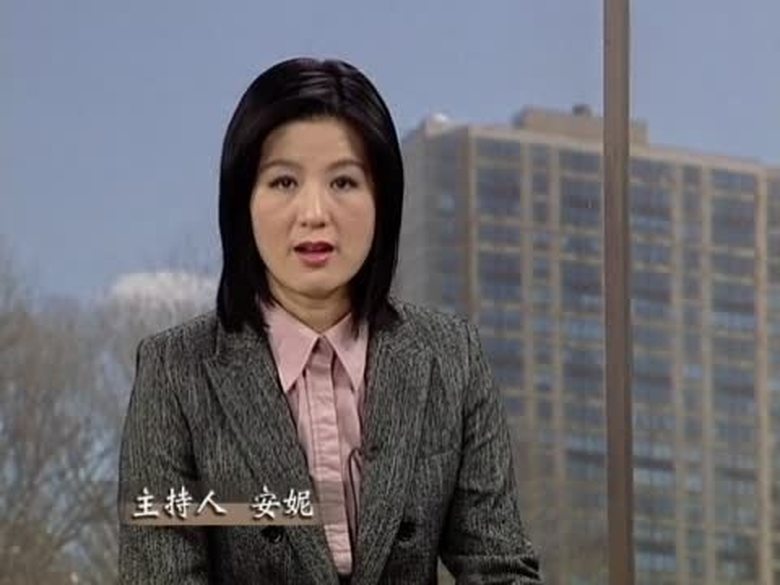
【禁聞論壇】「重慶大戲」前傳揭秘
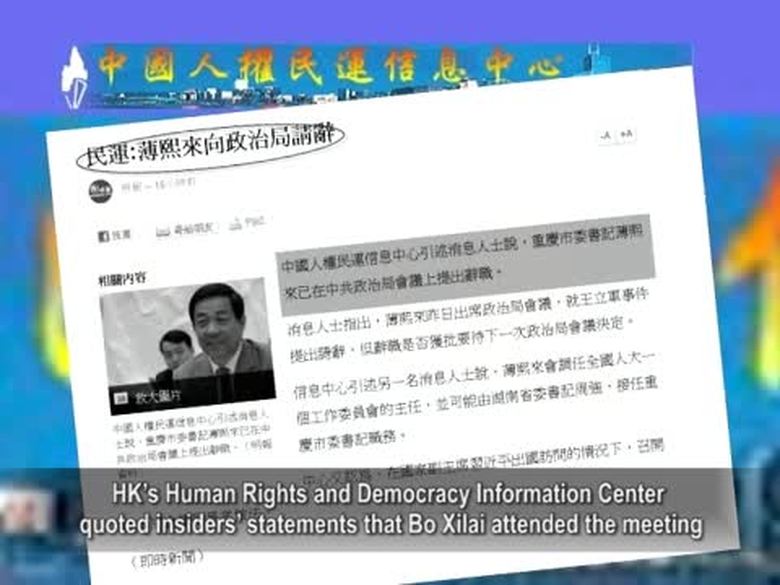
【禁聞】重慶否認薄熙來請辭 各派促胡處置
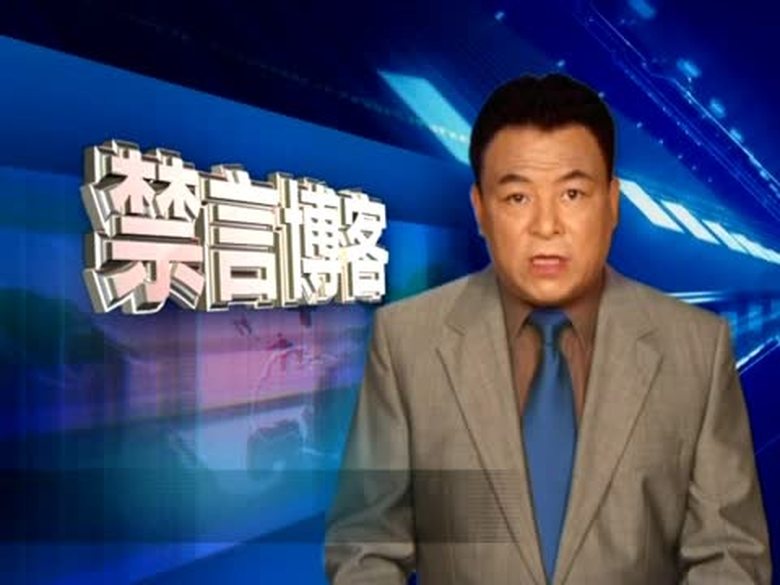
【禁言博客】討一張2012年的船票
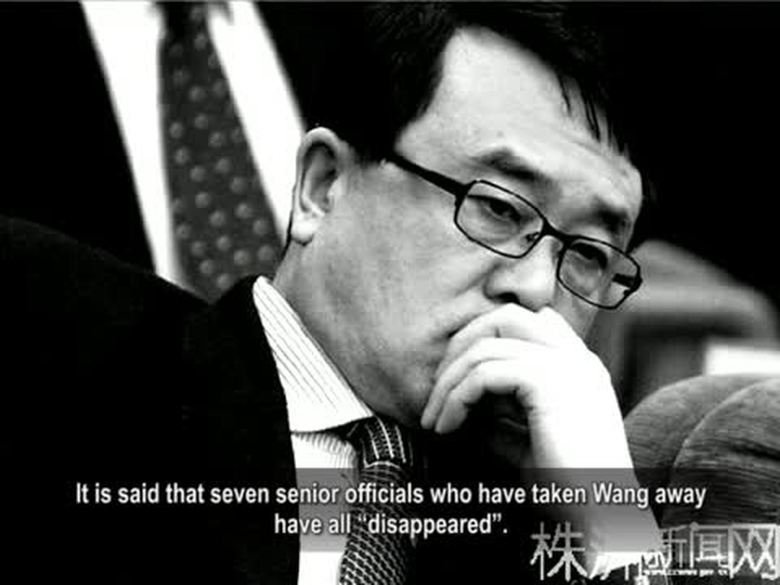
【禁聞】王立軍寧「投敵」 不「伴虎」
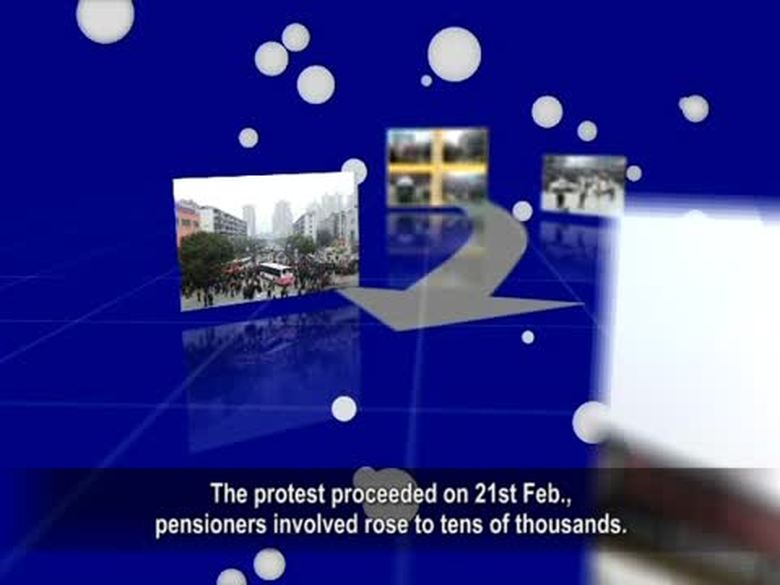
【禁聞】鄂萬名退休工人堵城 聲討退休金
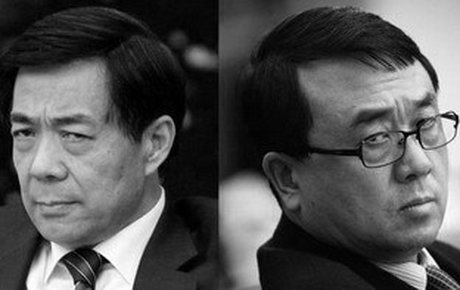
【禁聞】薄王案延燒衝擊江派 18大佈局重挫
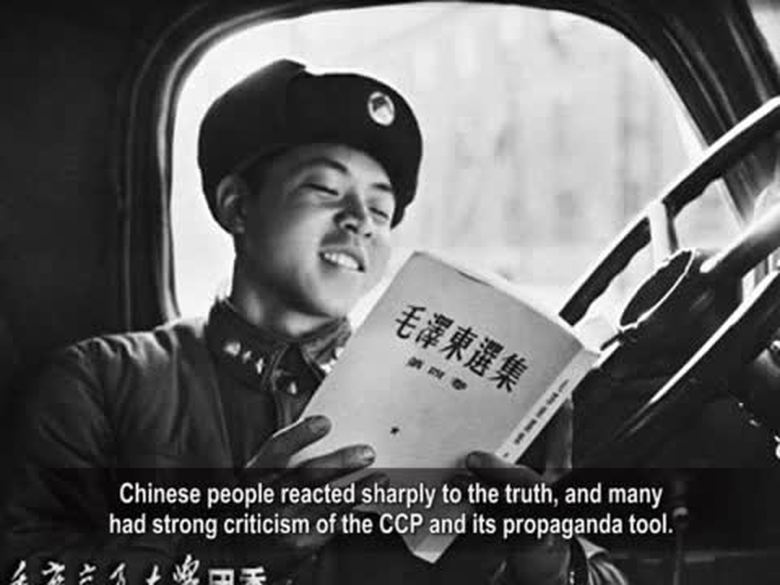
【禁聞】中共再拋「雷鋒」 遭嘲諷
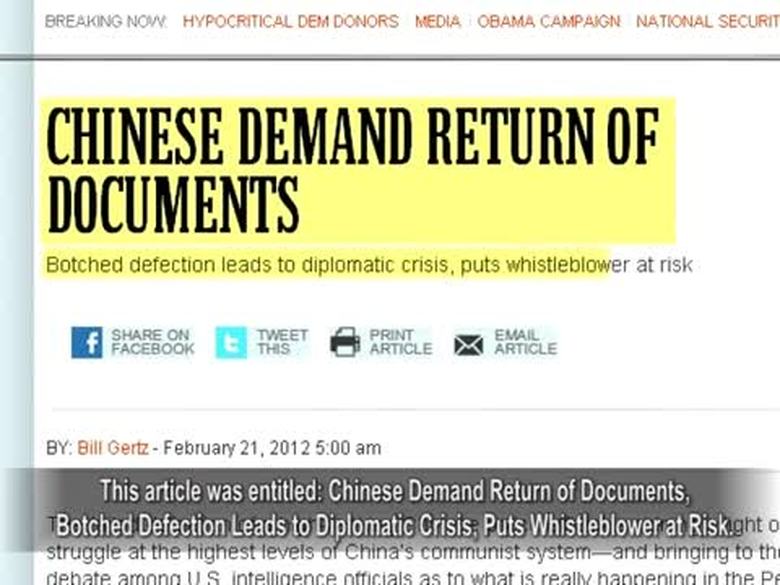
【禁聞】中共索要材料 王立軍命在美方手中
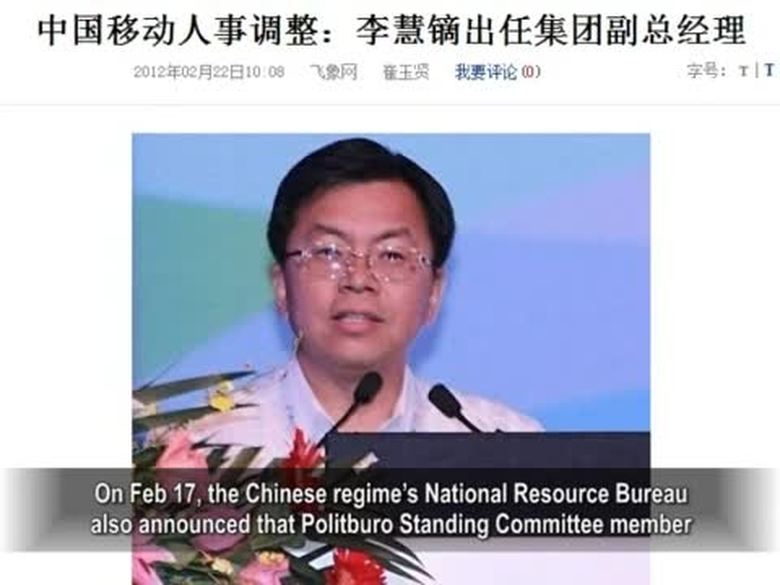
【禁聞】太子黨掌國企 媒體高調報導引揣測
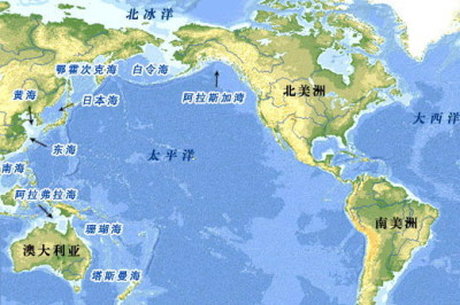
【禁聞論壇】誰的太平洋?

【禁聞】「林來瘋」商機發酵 企業搶註商標








